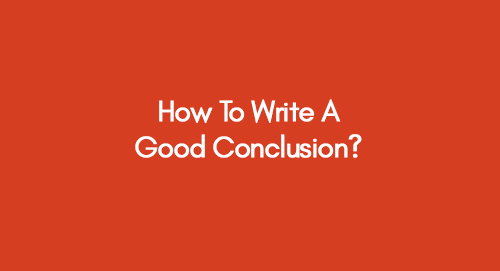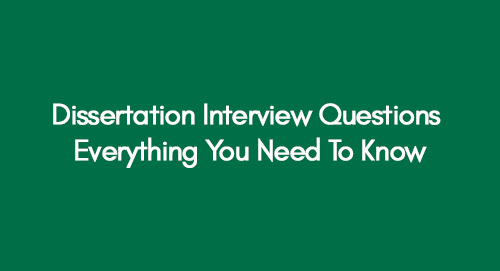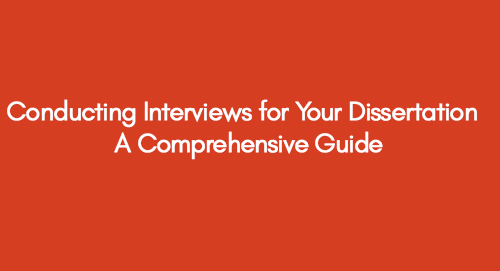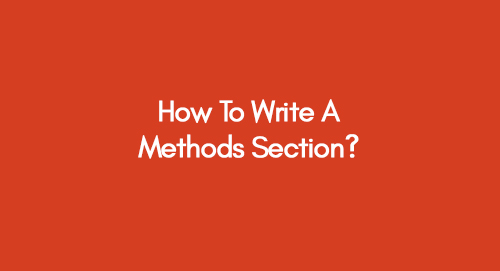
How to Write Research Methodology Section in Academic Writing? A Comprehensive Guide
October 26, 2022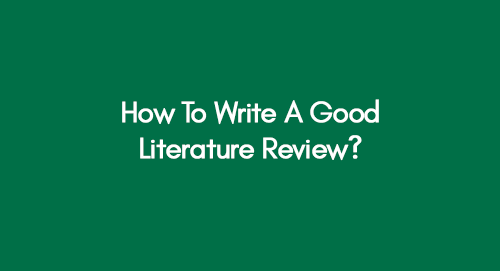
How to Write a Good Literature Review: Smart Ways to Succeed in Research Writing
October 27, 2022Writing a conclusion can indeed be challenging when you need to reiterate the same information mentioned in the introduction. Conclusions are must-haves of an academic article. While the conclusion may touch upon familiar points, it should not simply repeat the introduction verbatim.
Learn New Dissertation Topics Here
Find Interesting Dissertation Examples Here
In the following guideline, you will learn how to write a good conclusion using concise, analytical, and systematic writing. These strategies will enable you to craft your conclusions more effectively.
Get 3+ Free Custom Topics within 24 hours;
Explanation of a Conclusion
In an academic or research context, a conclusion typically reflects on the findings or results of a study, discusses their implications, and may suggest avenues for further research or application. It provides closure to the overall discussion and demonstrates the significance and relevance of the work.
A conclusion aims to tie up loose ends, reiterate the main message, and leave the audience with a sense of completion or a call to action. It should be concise yet comprehensive, providing a synthesis of the main content while adding a final touch that leaves a lasting impact on the reader or audience.
Explore Best Assignment Writing Services Here
Learn More About Writing Skills in English Here
Structure of A Good Conclusion
The structure of a good conclusion establishes its worth. A good conclusion should be structured as given below:
- Restate the thesis
- Summarize the main points
- Offer a final thought or opinion
- Leave the reader with something to think about
- End on a strong note
Do's of writing a good Conclusion
1- Restate the Main Points of your Argument
When you conclude your paper, it is essential to briefly restate your argument's main points. It will help to remind your reader of what you've already established and will help to strengthen your overall argument.
2- Synthesize-Don't Summarize
While it is important to restate your main points, you should also synthesize them to create a stronger conclusion. In other words, you should not simply repeat what you have already said; instead, you should try to draw new conclusions based on your presented evidence.
3- Address Counterarguments
Suppose there are any counterarguments to your argument. In that case, it is important to address them in your conclusion. Doing so will show that you are aware of opposing perspectives and that you have considered them in your argument. Additionally, addressing counterarguments can help to strengthen your overall argument by showing that you have considered all sides of the issue.
4- Call for Further Action or Research
Sometimes, calling for further action or research in your conclusion may be appropriate. For instance, if you are writing about a problem that needs to be addressed, you may want to call on your reader to take action to solve the problem. Alternatively, if more research needs to be done on a specific topic, you may want to call on future researchers to investigate the issue further.
5- Leave your Reader with Something to Think About
Finally, leaving your reader with something to think about in your conclusion is always a good idea. That could be a question for further reflection or an interesting fact or statistic related to your topic.
10 Tips to Achieve the Best Result from Your Conclusion
- Start with a transitional sentence.
- Summarize the main points of the essay.
- Restate the thesis statement.
- Make a final point or leave the reader with something to think about.
- Use strong and convincing language.
- Avoid introducing new information in conclusion.
- Proofread the conclusion for errors.
- Edit the conclusion for clarity and conciseness.
- Make sure the conclusion is not too long or too short.
- Ask someone else to read the conclusion to see if it makes sense.
Don'ts of Writing a Good Conclusion
Avoid following mistakes if you want to write a good conclusion.
1. Don't Make it Just A Restatement of the Thesis Statement
The conclusion shouldn't simply be a restatement of the thesis statement. While it is important to remind the reader of the main points of your argument, simply repeating what you have already said will not add anything new to your paper. Instead, try to end your paper with a bang by making a strong, final point that leaves the reader thinking about your argument even after they have finished reading.
2. New Information
Similarly, the conclusion should not introduce any new information that was not already present in the body of the paper. Doing so will only confuse the reader and make it seem as though you did not know what you were talking about in the first place. If you have new information that you want to include in your paper, make sure to put it in the body of the paper rather than in the conclusion.
3. Extended and Detailed Discussion
Your research paper's conclusion ought to be brief and uncomplicated. Avoid spending too much time on explanations and interpretations that belong in the paper's body, such as going into great depth on the procedures and findings of your research. The focus should be more on the conclusions reached from your investigation rather than the study itself, even when your conclusion provides a brief synopsis.
4. A List of All the Points you Made
It may be tempting to summarise all the arguments you made throughout your paper in your conclusion, but this is not a strong approach to do it. Listing your arguments will not only make your conclusion seem dull and unoriginal but also give the impression that you are just attempting to fill space rather than presenting a compelling argument.
5. A Joke
No matter how witty or amusing you believe a joke is, it's rarely acceptable for a conclusion. Keep in mind that the purpose of a conclusion is to leave the reader with a favorable opinion of both your argument and your writing style. Even a savvy joke can frequently backfire and leave the reader feeling unsatisfied or even furious.
Ending Remarks
The overall format for writing a research paper may be the same, but the method for writing the conclusion may differ based on the genre of your research paper and its norms. The ideal strategy to choose depends on the tone of your research paper, which might be analytical, explanatory, argumentative, etc.
Whatever strategy you adopt, make sure it keeps your research paper's tone and flow consistent and conveys your final argument to your readers in a way that will leave them with your intended impression.
Learn more about how to write a conclusion paragraph;
- Ten Things to Include in a Presentation-Worthy Report Conclusion
- Practical Strategies to Write A Good Conclusion
- How to Write a Conclusion for Academic Paper
- How to Write a Dissertation Conclusion?
- Wrapping up Your Dissertation: Create a Realistic Timeline for Completing Your Dissertation Conclusion
Contact Premier Dissertations to help craft the perfect conclusion paragraph for your next academic paper.
Get an Immediate Response
Discuss your custom requirements with our writers
Free Online Plagiarism Checker For Students
We will email you the report within 24 hours.
Upload your file for free plagiarism


















